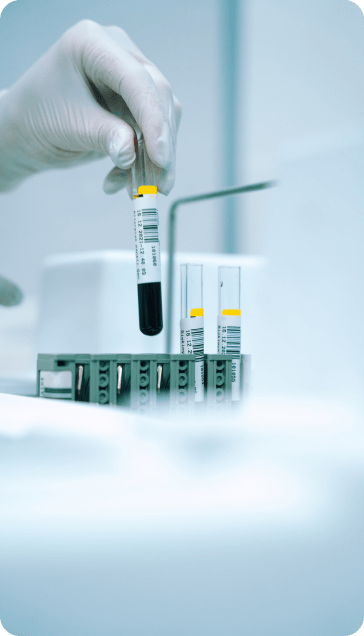
Al Borg Diagnostics
Healthy Eating Habits After Ramadan
The blessed month of Ramadan allows us to adjust our eating habits, eliminate unhealthy eating patterns, and give our digestive system a break. To maintain this after the end of this holy month, we will provide you with a set of healthy eating habits after Ramadan:
Healthy Eating Habits after Ramadan
It is essential not to strain the digestive system after the blessed month of Ramadan by following unhealthy eating habits. Therefore, we have gathered the most prominent healthy eating habits for post-Ramadan that we recommend following:
Break your fast wisely
Since the body has adjusted to fasting and not consuming food for long periods, consuming a lot of fatty and sugary foods is unhealthy, putting significant pressure on the digestive system.
Therefore, we advise you to avoid fatty and sugary foods and focus on consuming the following foods:(6)
- Fruit and vegetable juices.
- Vegetable or bone broth.
- Fruits.
- Cooked or raw vegetables.
- Unsweetened yogurt.
- Lettuce and spinach.
- Nuts and eggs.
- Grains.
Help your digestive health
Excessive consumption of sweets, soft drinks, and fried foods during and after the Eid celebration negatively affects the digestive system’s health.
Therefore, adding a probiotic supplement to your diet is necessary to replenish healthy bacteria levels in the intestines and improve digestive health. (3)(6)
Ensure Hydration
After the blessed month of Ramadan, it is essential to ensure you are getting adequate fluids, including water, lemon juice, fruit juices, coconut water, and others, to prevent dehydration. Fasting often leads to dehydration because the body loses water and minerals through urination and sweating. (1)(6)
Get the Majority of Calories in Breakfast
One healthy eating habit after Ramadan is consuming most of your daily calories in the morning and reducing calorie intake at night, which allows for an increased metabolic process.
This can be achieved by having a large breakfast containing plenty of fruits and proteins while limiting food intake at night.(5)
Consume Several Small Meals Daily
We recommend consuming several small meals daily, approximately 5 – 6 small meals instead of 3 large ones, to improve the metabolic process and allow the body to adapt to the new digestion pattern.(5)
Follow an Intermittent Fasting Regimen
One of the essential dietary habits we recommend after the blessed month of Ramadan is intermittent fasting.
Numerous scientific studies have shown the link between intermittent fasting and various health benefits for the body and mind. It accelerates the process of removing waste from dead and damaged cells in the body.
Intermittent fasting aids in weight loss, lower blood pressure and cholesterol levels, accelerates metabolism, and improves memory, sleep, and concentration. (2)(3)
Intermittent fasting is an eating pattern where a person abstains from calorie intake for a prolonged period, during which water, coffee, and calorie-free beverages are allowed, but solid food is completely avoided.
In reality, there are several methods to perform intermittent fasting, and the following are the most common ones:(4)
- 16/8 Method: This method allows for an 8-hour eating window determined by the individual (during which 2-3 or more meals can be consumed), followed by a 16-hour fasting period.
- 5:2 Diet: In this method, only 500 – 600 calories are consumed for two non-consecutive days of the week, while regular eating is maintained on the remaining days.
- Eat-Stop-Eat: This approach involves fasting for an entire 24-hour period once or twice weekly.
Additional Tips to Maintain a healthy after fasting for Ramadan
We advise you to adhere to the following tips:(2)(3)(5)
- Set a plan for regular exercise after the holy month, such as walking, cycling, swimming, or light cardiovascular activities.
- Make an effort to quit smoking, and try to start gradually during Ramadan.
- Regulate your sleep schedule and ensure you get adequate hours of sleep and rest daily.
We also recommend you visit one of the branches of Al-Borg Diagnostics to conduct a series of tests and ensure your health. This laboratory provides a wide range of analyses that help evaluate the efficiency of various organs in the body.
References:
- https://www.healthshots.com/healthy-eating/nutrition/5-tips-to-maintain-a-healthy-diet-after-fasting-for-ramadan/
- https://productivemuslim.com/10-tips-for-maintaining-your-health-after-ramadan/
- https://www.okadoc.com/blog/healthy-lifestyle/how-to-take-care-of-your-body-after-ramadan-eid-celebrations/
- https://www.healthline.com/nutrition/intermittent-fasting-guide#methods
- https://egyptindependent.com/life-after-ramadan-how-eat-sleep-and-exercise-normal/
- https://www.oxfordonlinepharmacy.co.uk/blog/how-to-take-care-of-your-body-after-ramadan-and-eid-celebrations



